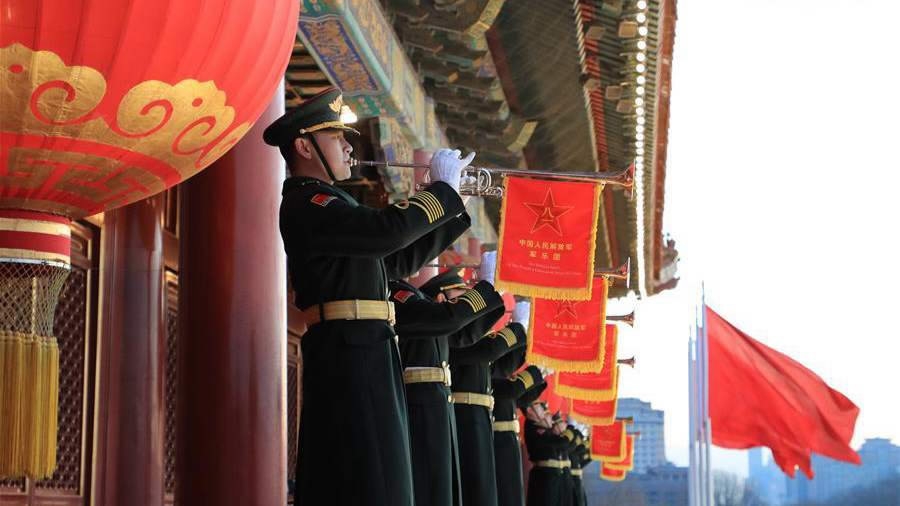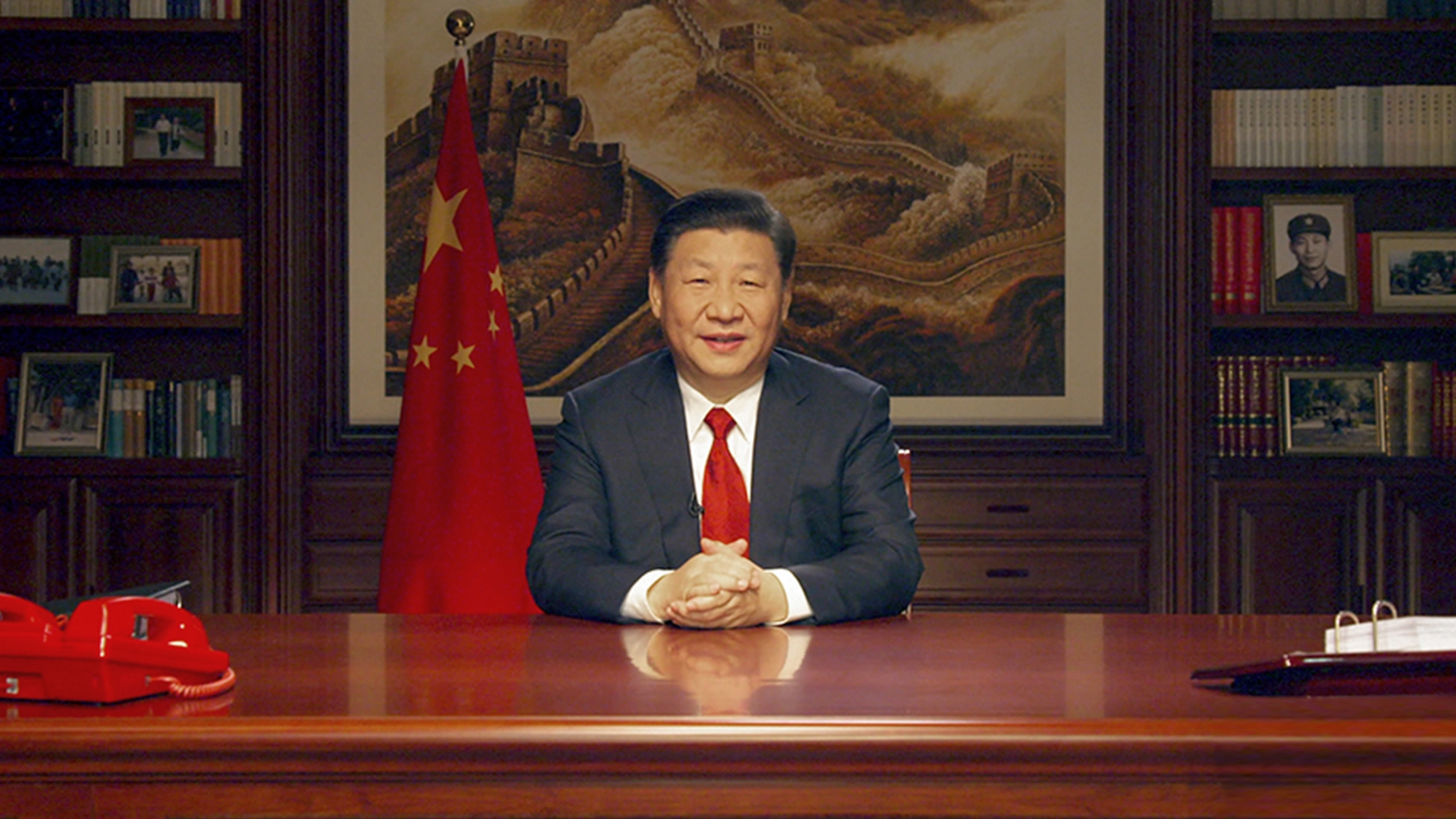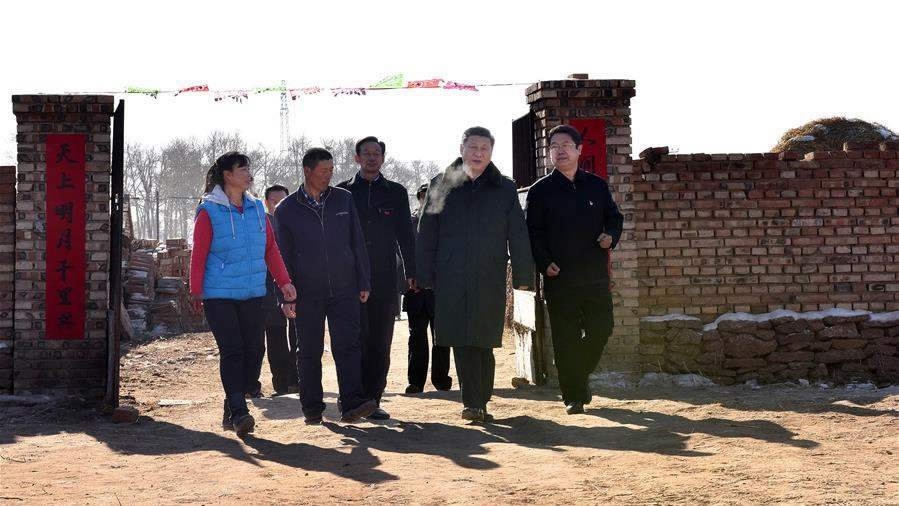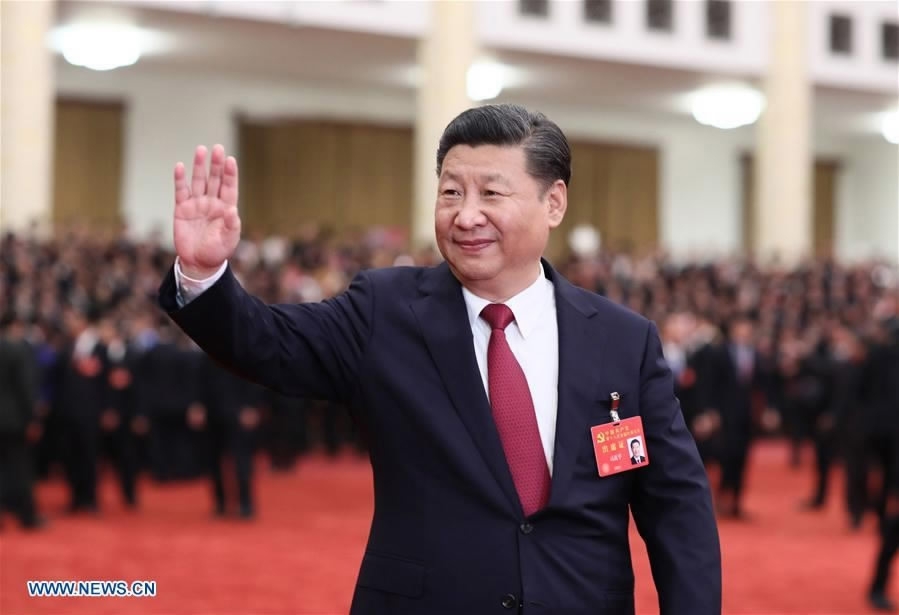
Opinions
16:14, 01-Jan-2018
Opinion: An arithmocratic agenda: From Deng Xiaoping to Xi Jinping
Guest commentary by John Gong

Chinese President Xi Jinping’s address on New Year’s Eve delivered the unequivocal message that the Chinese government is of the people, by the people and for the people. The nationally-televised speech reiterated an arithmocratic agenda meant to benefit China’s entire population.

The speech began with a brief overview of the social developments in 2017, followed by a quick summary of some of the great engineering achievements last year, reflecting China’s technological prowess in recent years. He then quickly moved onto dealing with poverty.

Chinese President Xi Jinping (second right) visits the home of villager Xu Xuehai in Desheng Village in north China's Hebei Province, January 24, 2017. /Xinhua Photo
Chinese President Xi Jinping (second right) visits the home of villager Xu Xuehai in Desheng Village in north China's Hebei Province, January 24, 2017. /Xinhua Photo
Xi set a grand target for the total elimination of poverty on a national scale by 2020, and said the government and the whole society should be mobilized to make joint efforts toward that goal. China’s eventual farewell to poverty for good would be a landmark event of great significance in the entire human history, according to Xi.
This message of course is nothing new from the Communist Party of China (CPC). It was first put forth by late Chinese leader Deng Xiaoping some thirty years ago. However, the true meaning of what Deng said has been lost, in my opinion, as most frequently remember only the first part of what Deng said: “Let a few get rich first.” Regrettably, the latter part of what he said, the part about “common prosperity," has been overshadowed by the torrential rush to get rich first!
Many people have in fact, gotten rich over the years. Today, China probably has the world’s most billionaires and millionaires. But we also probably have the world’s largest population still struggling around the poverty line.

Deng Xiaoping addresses the opening ceremony of the 12th National Congress of the CPC in Beijing, September 1, 1982. /People.com.cn Photo
Deng Xiaoping addresses the opening ceremony of the 12th National Congress of the CPC in Beijing, September 1, 1982. /People.com.cn Photo
To resonate with what President Xi preached last night, it is time to revisit history. Roll the clock back to September 2, 1986, the day that Deng Xiaoping spent over an hour with America’s CBS news correspondent Mike Wallace. Here is the most important section of that famous conversation in my opinion:
Wallace: To get rich is glorious. That declaration by Chinese leaders to their people surprises many in the capitalist world. What does that have to do with Communism?
Deng: There can be no communism with pauperism, or socialism with pauperism. So to get rich is no sin. However, what we mean by getting rich is different from what you mean. Wealth in a socialist society belongs to the people. To get rich in a socialist society means prosperity for the entire people. The principles of socialism are: first, development of production and second, common prosperity. We permit some people and some regions to become prosperous first, for the purpose of achieving common prosperity faster. That is why our policy will not lead to polarization, to a situation where the rich get richer while the poor get poorer.
It is a pity that most people just remember Deng’s statement of “To get rich is glorious.” Few heed attention to his teaching on common prosperity.

Xi Jinping, General Secretary of the CPC Central Committee, meets with delegates, specially invited delegates and non-voting participants of the 19th CPC National Congress at the Great Hall of the People in Beijing, October 25, 2017. /Xinhua Photo
Xi Jinping, General Secretary of the CPC Central Committee, meets with delegates, specially invited delegates and non-voting participants of the 19th CPC National Congress at the Great Hall of the People in Beijing, October 25, 2017. /Xinhua Photo
President Xi is one of the few exceptions. It is clear that the Chinese government under Xi’s leadership is bent on carrying on Deng’s baton of common prosperity.
After 30 years of rapid economic development where our average GDP growth is close to double digits, Chinese society has reached an unprecedented level of prosperity in recent history by any standards.
Yet, this prosperity is still mostly enjoyed by the upper and middle class who reside mostly in coastal areas as the direct beneficiaries of the reform and opening up policy. Our society cannot move forward while leaving behind the less privileged in less developed areas.
Common prosperity goes well beyond poverty elimination. It also includes causes that are described as tackling the principled contradictions discussed extensively during the 19th CPC National Congress. That means addressing issues of popular concern, such as education, employment, environment, healthcare, social security, elderly care and so on.
Addressing civil employees at all levels of the government in particular, the last part of Xi's speech described what's needed in lively terms: Think what the people think, and attend to what people needs to be attended.
(The author is a professor at the University of International Business and Economics. The article reflects the author’s opinion, and not necessarily the views of CGTN.)

SITEMAP
Copyright © 2018 CGTN. Beijing ICP prepared NO.16065310-3
Copyright © 2018 CGTN. Beijing ICP prepared NO.16065310-3